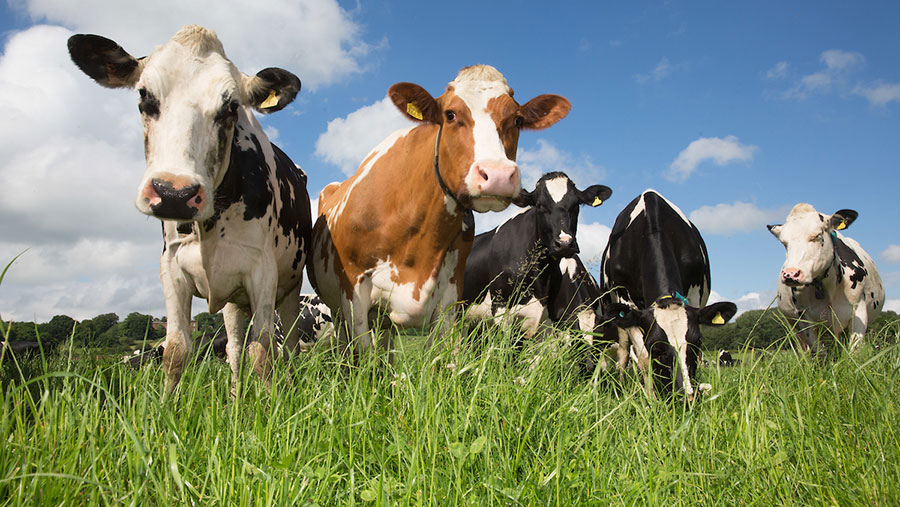Scheme to tackle dairy sector carbon emissions launched in NI
 © Tim Scrivener
© Tim Scrivener A new scheme to tackle carbon emissions in the dairy sector has been launched in Northern Ireland by agriculture and environment minister Edwin Poots.
The voluntary carbon audits programme will start in 2022 and is open to all College of Agriculture, Food and Rural Enterprise Dairy Business Development Group members who financially benchmark their farm.
The development group is part of the Farm Business Improvement Scheme in the Northern Ireland Rural Development Programme 2014-20 and is part funded by the European Agricultural Fund for Rural Development.
See also: Tools that can help with carbon footprint assessments
Mr Poots said the aim of the initiative was to enhance understanding of carbon emissions in the sector and how to reduce them.
It will complement Daera’s Green Growth Strategy, which is focused on working towards a low greenhouse gas emissions society.
“This new carbon benchmark programme is an excellent example of collaborative working,” said Mr Poots.
“I would strongly encourage all eligible dairy farmers to get involved in the programme and together we can, we will and we must make the changes necessary for a greener future.”
Mike Johnston, chief executive officer of the Dairy Council for Northern Ireland, said the audits were necessary for: reducing the carbon footprint; providing evidence to customers about what measures are being taken; and sourcing data to prove the sustainability of family-run dairy farms.
He also emphasised that any information collected would remain confidential and would not be shared.
Vital step
Ulster Farmers’ Union deputy president David Brown said: “We welcome the further roll out of carbon audits on farms. There are already many farms across NI undertaking this work through various initiatives and it is positive to see the dairy industry now committing to carbon audits.
“This will be vital to help the industry understand the baselines and drive improvements in our efforts to mitigate climate change.
“We would encourage every farmer who is offered the opportunity to take up the offer to learn more about their farm’s carbon footprint.”
In August, dairy co-op Arla revealed carbon footprint data from 1,964 of its UK producers.
The results showed that the farmers’ raw milk was produced with emissions of 1.13kg/litre of CO2e, which is about half the global average and less than the UK average of 1.25kg/litre.
Arla has set a target of reducing its farm emissions by 30% by 2030, to keep in line with the Paris Agreement on climate change.
Last month, First Milk and Wyke Farms announced plans to pay a sustainability bonus to suppliers who adopt greener farming practices.
